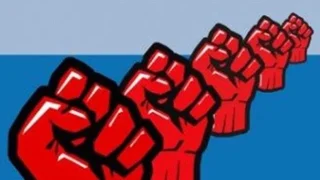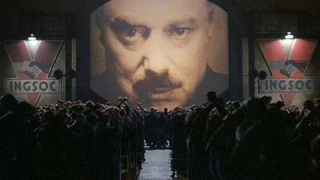
Introduction
I have the great honour and distinction of introducing the 2023 John Bonython Lecturer, Jason Riley. Jason is a columnist with the Wall Street Journal, a member of its editorial board, and has been affiliated with the Wall Street Journal for the best part of three decades. Jason is also the biographer of the great Thomas Sowell, the eminent classical liberal economist and political conservative. Thomas, as it happens, was the 1988 John Bonython Lecturer, and was absolutely outstanding. So, it’s great to have his protégé present the 2023 John Bonython Lecture.
— Tom Switzer
The irony of social justice
I thought I’d start by spending a few minutes talking about social and economic inequality. And I want to do so in the context of the social justice debate that we’ve been having, not just in the US but also in other countries around the world. I spoke at a conference in the UK earlier this year, which was held at Cambridge University. Same issues, same arguments, just different accents. Social justice is all the rage today. It drives discussions of everything from tax policy to welfare state spending and what’s taught to children in schools. Proponents of the Voice referendum here, I’m told, are acting in the name of social justice.
In recent years, the progressive left has been on the ascent in American politics and advocates have pushed for social justice in the name of addressing inequality. What I’d like to do, however, is to challenge the premise of this discussion, and I’d like to do that by drawing from the writings of Thomas Sowell, as mentioned earlier.
For those of you who are unfamiliar with him, Sowell is an economist by training, specialising in the history of economic thought and ideas. But he’s also a sociologist, a political philosopher and a social theorist. He taught economics at several universities in the 1960s and seventies, including Cornell and UCLA. And in 1980 he joined the Hoover Institution at Stanford University where he remains today.
Among his many books, Sowell says that his favourite is one titled A Conflict of Visions. It’s a book about the history of ideas, and tries to explain what drives our ideological disputes about freedom and equality and justice. Sowell traces these disagreements back at least two centuries to thinkers such as the British journalist William Godwin and philosophers such as Immanuel Kant and Jean-Jacques Rousseau, down through John Rawls and the social justice advocates alive today.
The conflicting or contrasting visions he describes in the book are the constrained, or sometimes he calls it the tragic, view of human nature and the unconstrained or more utopian view. People with a more constrained view of the human condition see mankind as hopelessly flawed.
They see inherent limits to human betterment. We might want to end poverty or war or racism, for example, but that’s probably not going to happen, people with this view reason. Therefore, our focus should be on putting in place institutions and processes that help us deal with problems that society is probably never going to solve entirely.
On the other side, you have this unconstrained or utopian view of human nature which basically rejects the idea that there are limits to what humans can achieve. This is the belief that nothing is unattainable, and moreover, no trade-offs are necessary. Everything is available to all who want it. According to this perspective, through the proper amount of reason and willpower, we can not only manage problems like inequality and discrimination, but solve them entirely.
In A Conflict of Visions, Sowell argues that depending on which view you embrace, there are a whole host of public policies you’re likely to support or oppose. The book explains why two people similarly well-informed, similarly well-meaning will reach opposite conclusions, not just on a given issue, but on a whole range of issues; taxes, rent control, school choice, military spending, judicial activism, and so forth.
When Immanuel Kant said, “From the crooked timber of humanity, no truly straight thing can ever be made”, he was exhibiting this constrained view. When Jean-Jacques Rousseau said, “Man is born free, but everywhere in chains”, he was voicing the unconstrained view. When Oliver Wendell Holmes, US Supreme Court Justice in the early 1900s, said that his job as a judge was to make sure the game is played according to the rules, whether he liked them or not, it was the constrained view. But when Earl Warren, Supreme Court Justice in the 1950s and sixties, said that his job as a judge was to do what he thought was right, regardless of the law, it was an unconstrained view.
A Conflict of Visions is part of an informal trilogy by Sowell on the history of ideas published over a 12-year period. And the third book in that trilogy is titled, The Quest for Cosmic Justice, which is the main source of these remarks this evening. Cosmic Justice, as Sowell is using the phrase as a form of social justice and social justice advocacy, springs from that unconstrained view of human nature where there are no limits to human betterment and no trade-offs in addressing inequality.
But before we go any further, I’d like to back up and say a couple of things about the premise of the social justice debate. First thing I want to stress is that social justice and traditional justice are two very, very different things, two very different concepts. And social justice advocates have attempted to redefine what is commonly understood when we talk about justice and fairness.
Traditional justice is about ensuring an impartial process, not about guaranteeing certain results. A defendant in a criminal case has received justice if the trial is conducted under fair rules with an impartial judge and jury, regardless of whether the outcome is guilty or not guilty. A basketball game is considered fair if everyone plays by the same rules regardless of who wins.
Social justice is closer to the opposite of this. Results and standards can be set aside in hopes of achieving certain results and the larger ramifications for society, that is the trade-offs, are downplayed or ignored. Think about a university admissions process that has one set of criteria for black applicants and a different set for whites.
What matters most to the social justice advocate is the outcome, not the process. In fact, to the social justice advocate, the process should be rigged if necessary to get a desired result, such as more racial balance on campus, even if that means discriminating against certain groups to get that outcome. This is not simply a question of semantics.
Understanding inequality
The social justice advocates bring an almost utopian mindset to these issues of social and economic equality. Their presumption is that equal outcomes or something approaching or approximating equal outcomes is the norm in society, and that where we don’t find it, something nefarious must be going on.
This is not to say that we shouldn’t be bothered by inequality. We should be, and most of us are, but the goal is to understand why it persists. And the reason inequality continues is because it is the norm. It’s not the exception.
Disparities, gaps, inequities are not always strange or sinister. They are natural and widespread. They exist in all kinds of human endeavours all around the world, down through history. Yes, discrimination and exploitation also exist, and they can worsen inequality, but they hardly explain disparate outcomes which exist even among groups of the same race and ethnicity.
The reality is that different groups often have different cultures, different behaviours, different attitudes and habits, which is why people don’t tend to advance at the same rate, not within countries and not between countries, not historically and not currently. Nor is there any guarantee that a group that has advanced will necessarily stay advanced.
In the previous era, China was the most advanced society on the planet. Later, it would be the Middle East, then Europe, then America. The ancient Greeks and Romans were far more advanced than their British and Scandinavian contemporaries. Just a few generations ago, Japan was poorer than any country in Western Europe. Today, Japan is wealthier than any country in Western Europe.
Again, these disparities exist not only between countries, but within countries. People in isolated mountainous regions tend to lag behind people from the lowlands. People who live on coasts have tended to be more advanced than people who live inland. It doesn’t matter whether these are people of the same race or different races.
Bottom line is that disparities are commonplace. Yet we continue to have a debate about inequality that treats these differences as weird or otherworldly. Scholars who have studied societies down through history have never found this evenness in group advancement that social justice advocates tell us is normal and that would exist in society if it weren’t for racism or discrimination or exploitation.
Progressives expect to see equal representation among groups in test scores and graduation rates and professional occupations and criminal behaviour and income levels and on and on, but they can’t point to a single society where this has ever happened. It’s utopian.
Whatever the reasons behind these economic disparities, what’s important to understand is that they’ve been common throughout human history.
Today, Japan is twice as rich as Canada. India’s GDP is three times that of Switzerland. Sub-Sahara Africa’s GDP is less than a 10th of Europe. Some people have suggested that this world inequality exists because some countries were able to take advantage of the industrial revolution while others could not.
One problem with that explanation is that inequalities among nations did not begin with the industrial revolution or with colonialism or with slavery. Some say Africa is poor because the West plundered it, but Africa was poor before the colonists arrived. It was poor while they were there, and it was poor after they left.
In America there have been calls for slavery reparations for black people in the name of social justice to address income inequality. Proponents say that slave labour made America rich. Well, it’s true that some individual slave owners prospered due to slave labour, but that’s different from concluding that the entire country was made better off economically.
Slavery in America was concentrated in the south, yet the south was the poorest region in the country, both during slavery and afterward. The same can be said of Brazil. Those regions of Brazil that had slavery were poorer, both during slavery and afterwards , than those regions of Brazil that had few, if any, slaves. And despite importing far more slaves than America, Brazil never became as prosperous as America.
Eastern Europe had slavery far longer than Western Europe, yet Western Europe has always been richer. In fact, the per capita income gap between Eastern and Western Europeans today is larger than the white gap in America.
On an even more basic level, it’s important to remember that people don’t behave randomly. They behave with a purpose in mind. They don’t immigrate randomly and choose jobs or neighbourhoods to live in randomly, or raise their children randomly. Behaviour patterns differ. They differ between groups, whether you break it down by race, sex, or religion or in other ways. The way children are raised also differs greatly from one income level to another, which can also perpetuate inequality.
One study showed that children and families where the parents are professionals, doctors, lawyers, engineers, their children hear about 2100 words per hour at home on average. Children whose parents are working class, auto mechanic, factory worker, hear about 1200 words per hour, and the child from a poor family on welfare hears about 600 words per hour on average at home. And that might not seem like a huge difference, but what it means is that over time, a 10-year-old child from a family on welfare will not have heard as many words at home as a three-year-old child of professionals. And think about how that statistic alone can affect life outcomes for a child, how it could impact learning and job prospects later on.
You can’t blame racism or prejudice for this sort of thing, and nothing the government can do will give this welfare child the same life chances as the child of professional parents.
The role of culture
Let me use a personal example to illustrate the role that culture can play in this respect. Many years ago, shortly after I joined the Wall Street Journal and moved to New York City, I took a trip back home to Buffalo where I was born and raised, and was visiting my older sister. I was chatting with her daughter, my niece, who was maybe in the second grade at the time.
I asked her about school and her favourite subjects and that sort of thing when she stopped me and said, “Uncle Jason, why you talk white?” And she turned to her little friend who’s there with her and said, “Don’t my uncle sound white. Why are you trying to sound so smart?” She was just teasing, of course. And I smiled and the two of them enjoyed a little laugh at my expense, but what she said stayed with me. I couldn’t help thinking here were two young black girls, seven or eight years old, already linking speech patterns to intelligence and race.
They already had a somewhat sophisticated awareness that as blacks, white-sounding speech was not only to be avoided in their own speech, but mocked in the speech of others. Now, I shouldn’t have been too surprised by this and I wasn’t. My siblings, along with countless other black friends and relatives teased me the same way when I was growing up and other prominent black professionals from Barack Obama on down have told similar stories.
What I’d forgotten is just how early these attitudes take hold, how soon this counterproductive thinking and behaviour begins. New York City, where I’m based, has the largest school system in America, more than a million schoolchildren, and around 80 per cent of black kids in New York City public schools are performing below grade level – 80 percent! And a big part of the problem is a black subculture that rejects attitudes and behaviours that are conducive to academic success.
Black kids read half as many books and watch twice as much television as their white counterparts, for example. In other words, a big part of the problem is a culture that produces little black girls and boys who are already worried about acting and sounding white by the time they are in the second grade.
New York City’s most selective public high schools release demographic data each year on who’s admitted. And there is nothing resembling a random distribution of students by race or ethnicity when it comes to who gets into these schools. There are eight of them, and they admit students based on a single standardised exam.
Every year, Asian students who comprise just 16 per cent of the city’s public school system are awarded more than 50 per cent of the slots. The Asian student outcomes we see year after year aren’t the result of luck or privilege. They stem from hard work and a culture that prioritises learning.
Research shows that Asian kids read more books and watch less television and study longer than other groups. Even in low income Asian families, money goes toward test prep instead of $300 sneakers. And the results are obvious at elite schools, not just in New York but nationwide, where even low income Asian students have outperformed middle and upper income students from other groups.
And we see it not only in our elite high schools, but also at our elite colleges. We’re having a debate in America about eliminating standardised tests in order to produce more racial balance, all in the name of social justice. Some claim the tests are racist, but if that’s true, how is it that Asians, a racial minority group, get the highest scores?
The Asian experience also undermines efforts to use past discrimination as a blanket explanation for today’s racial disparities. Black Americans obviously aren’t the only people ever to be discriminated against in the US, though you might not know that listening to some US commentators.
Chinese Americans were lynched. Japanese Americans were placed in internment camps during World War II. Asians in California were forced to attend separate schools, kept out of certain jobs, not allowed to own land in some areas. Yet Asian Americans today outperform white Americans both academically and economically and have for decades.
The story also has been true among other racial and ethnic minority groups around the world; the ethnic Chinese in Southeast Asia, Indians in Uganda, the Lebanese in West Africa, and of course Jews all over the world are just a few examples for racial or ethnic minority group outperforming the majority either economically or academically, or both, despite being discriminated against in the past or even in the present.
None of this is to deny that racism exists or to deny that it can have a negative impact on upward mobility. It does exist and it can have an impact. The question is not whether racism and discrimination exist, but rather how much they’re impacting an underperforming minority group compared to other factors.
The false premise of social justice
Today, the belief in social justice as a moral imperative is all the rage; its jargon – white privilege, systemic racism, unconscious bias – has entered the media lexicon. But it is based on a shaky premise, which is that evenness in outcomes is the norm. And where we don’t find it, something fishy must be going on. My larger point is that inequality today between different racial and ethnic groups in the US has less to do with discrimination and far more to do with different cultural attitudes and behaviours and habits.
In a television interview many years ago, Thomas Sowell was asked why some groups in America do better than others. And I want to read to you his response.
“I would look at it differently. I would say, and especially in the United States I would say, why would you expect different groups to do the same? I say, especially in the United States, because there are very few indigenous Americans. Americans have come here from all over the world. Why would you ever expect the countries that had entirely different histories located in entirely different climates, different geographies, why would you expect these countries to develop exactly the same mix of skills to exactly the same degree, so that their people would arrive on these shores in such a way that they would be represented evenly across the board? Especially since even in countries where most of the population is indigenous, you don’t find it there. Nowhere in the world do you find this evenness that people use as norm,” he said. “And I find it fascinating, that they will hold up as a norm, something that has never been seen on this planet, and regard as an anomaly, something that is seen in country after country, after country.”
If we’re going to have an honest debate about what drives inequality today, it has to include a discussion about behavioural differences among groups. And too many social justice advocates do not want to have that discussion. Thomas Sowell, by contrast, is someone who has spent a lifetime following the facts where they lead and reporting the results even when they are politically incorrect.
And that’s why his scholarship continues to resonate. Sowell turned 93 last month. Later this year, he will release his 37th book, and his sixth book since turning 80. That’s not too bad for a black orphan born into extreme poverty, during the Great Depression, who never finished high school, didn’t earn a college degree until he was 28 years old and didn’t write his first book until he was 40.
Even aside from that impressive personal journey, Sowell is a rare species. He’s an honest intellectual. He’s someone who has consistently sought out the truth regardless of whether it made him popular. It’s not something that ought to distinguish you as a scholar, but these days it does.
In the US, we’re currently having a heated debate over critical race theory, which is really just a fancy argument for racial favouritism. These ideas were once relegated to college seminars. Now they’re entering our workplaces through mandatory diversity training, and they’re entering our elementary schools through the New York Times’ 1619 project, an effort led by a black journalist named Nikole Hannah-Jones, that attempts to rewrite history and put the institution of slavery at the centre of America’s founding.
Nevermind that slavery existed for thousands of years in societies all over the world long before the founding of the United States. What makes America unique is not slavery; it’s emancipation. It’s how fast we went from slavery to a Martin Luther King, to a black president. The economic and social progress of Black Americans in only a few generations is something that historians have described as unmatched in recorded history. That’s what makes America unique.
These facts about slavery are well known among serious historians.
But where are these serious historians right now? A few have come forward, but why so relatively few? Why isn’t the head of every history department, every major university, pushing back against the 1619 project nonsense being pedalled by the New York Times and Nikole Hannah-Jones, and now infiltrating our elementary schools? The nation’s top scholars ought to be falling over one another denouncing this stuff. Why have so many been so quiet?
There have been countless books written by serious scholars about America’s founding, and none of those books were written by Nikole Hannah-Jones. Why are serious historians so afraid to take on a journalist who has never written a book about anything, never written a single academic paper about anything, let alone about the history of slavery and the nation’s founding?
The reason they are so afraid is because taking her on is politically incorrect. She is a black woman. They’ll be called racist, and sexist, might damage their academic careers, could be de-platformed. It’s the sort of intellectual cowardice that makes Thomas Sowell’s work and life unique. It’s what distinguishes his scholarship. Courage. Sowell wasn’t afraid.
It’s the sort of thing that ought to be commonplace among scholars and intellectuals and journalists for that matter. But sadly, it is not. Sowell has spent a career putting truth above popularity, and I think we need a hundred more just like him. Thank you.









